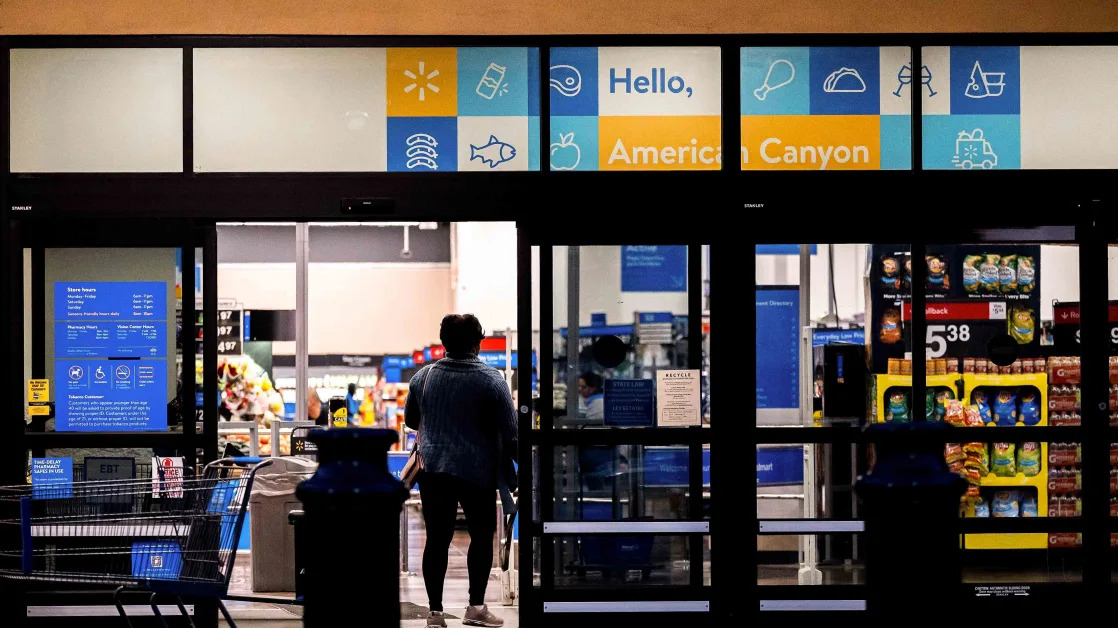While discussion around a slowing US economy has rippled through Wall Street this month , the amount of companies actually discussing recession with investors during conference calls is near its lowest level in three years.
From June 15 to Aug. 15, just 28 S&P 500 companies mentioned recession on their earnings calls, according to new data from FactSet. That's well below the five-year average of 83 companies and less than the 10-year average of 60 companies.
In the first quarter of this year, there were just 27 mentions of "recession." Before that, you'd have to go back to the fourth quarter of 2021 to find less talk about recession during earning calls.
Mentions have fallen significantly from levels in 2022, when one of the most widely anticipated recessions in history never came.
"The very low levels of 'recession' mentioned in the just-completed second quarter of 2024 is a sign of management confidence in current and near-future earnings power," DataTrek’s Nicholas Colas wrote in a note to clients on Monday morning. "If there were any need to excuse either earnings misses or reduced forward guidance, we would certainly be hearing more about recession looming somewhere just over the horizon."
Following the July jobs report , a popular recession indicator — the Sahm Rule — was triggered after the unemployment rate hit its highest level in nearly three years. A sharp sell-off in the stock market in early August stoked additional fears that investors , and the Federal Reserve, had overlooked an abrupt economic downturn.
Still, economists have largely noted that, for now , the US economy appears to be cooling off but isn't headed for an outright downturn, making calls for an imminent recession few and far between.
Goldman Sachs' economics team dialed back the odds of a recession in the next 12 months to 20% from 25% on Aug. 17, noting that recent data, which showed resilient consumer spending and a lack of layoffs, showed "no signs of recession."
The state of the American consumer, however, has remained a hot-button issue throughout second quarter earnings season, and Goldman Sachs' equity strategy team led by David Kostin sees these read-throughs as a mixed bag.
"Similar to previous quarters, several companies have noted that consumers of their products remain under pressure from the macroeconomic environment and that this pressure has led to weaker sales," Kostin wrote in a note to clients on Aug. 14. "This experience is not universal, however, as other companies continue to see resilient consumer spending."
Kostin highlighted that companies continue to discuss consumers searching for value.
This matches similar commentary Walmart CFO John David Rainey told Yahoo Finance about the consumer following the company's quarterly release on Aug. 15.
"The consumer is hanging in there," Rainey said.

There are similar signs of slowing in the labor market, but there has not been an increase in layoffs such as what would typically precede a recession. Kostin's team found that about 3% of companies in the Russell 3000 index discussed layoffs during quarterly earnings calls, down from the 2022 peak above 6% and roughly in line with pre-pandemic trends.
"Company commentary this quarter regarding hiring plans and the labor market largely reflects a healthy labor market," Kostin wrote. "While there have been discussions of reducing headcount or slowing the pace of hiring, commentary generally reflects a better balance between companies' hiring needs and the available pool of talent."
Broadly, earnings have come in strong for the quarter. S&P 500 companies are tracking for earnings growth of 10.9% year over year in the second quarter, the highest annual growth rate since the fourth quarter of 2021.
Deutsche Bank chief equity strategist Binky Chadha noted that companies are reporting steady growth but without a lot of "upward momentum," as corporates are still weighing uncertainties around interest rates, inflation, and the election.
"Many companies emphasized that client activity was being deferred, delayed, and pushed out, not abandoned or canceled, and most did not see any signs of a broader recession," Chadha wrote.
"There was therefore pent up demand building and they were confident of a pickup when greater macroeconomic and political clarity emerged."
Josh Schafer is a reporter for Yahoo Finance. Follow him on X @_joshschafer .





